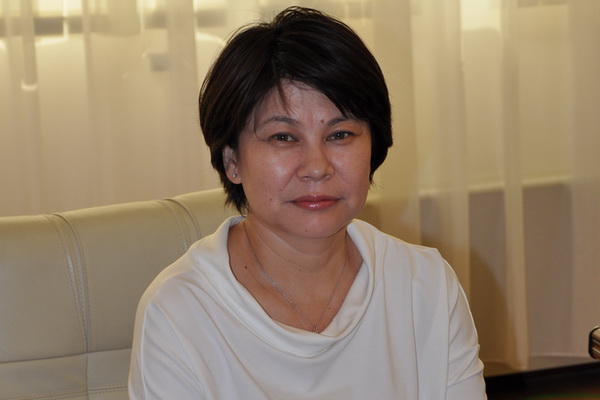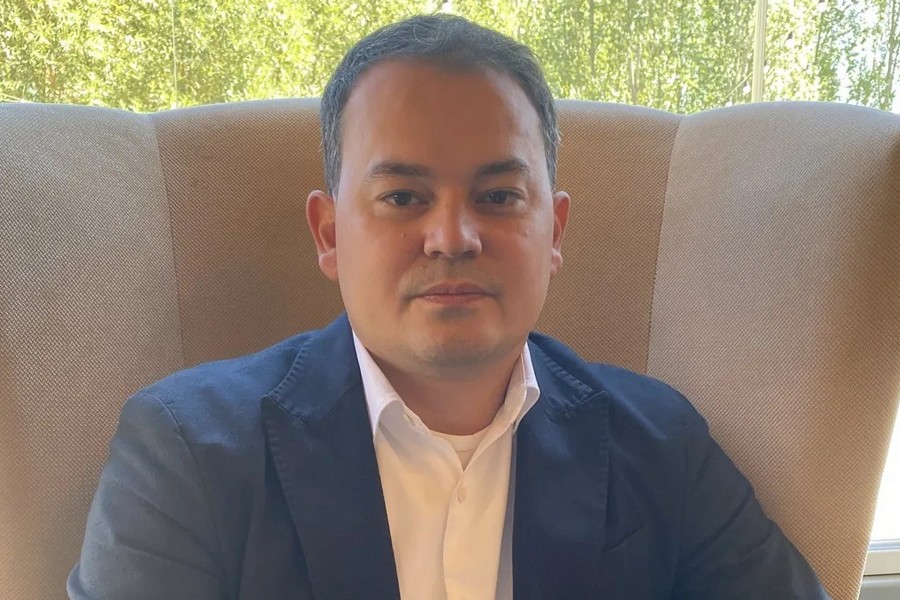Deputy Chairman of the Health Care Payment Committee of the Ministry of Health and Social Development Gulzhan SHAIKHYBEKOVA:
INSURANCE PREMIUMS WILL HELP PEOPLE REDUCE HEALTH EXPENSES

A Compulsory Health Insurance Fund is to be created in Kazakhstan this year. The government of Kazakhstan is the founder and the sole shareholder of the Fund. Deputy Chairman of the Health Care Payment Committee of the Ministry of Health and Social Development Gulzhan SHAIKHYBEKOVA told Interfax-Kazakhstan in an interview how the Fund will work and how it will benefit the health care system of the country.
- Mrs. Shaikhybekova, what is your opinion about the health insurance system that will be introduced in Kazakhstan; is it advantageous for the patient? The main question is: Will the whole health care system be changed or will it only change the source of financing?
- Let us take simple examples. If people have bronchitis, they usually go to see the doctor only three or four days after the illness started, and the doctors prescribe some medications. Sometimes people cannot afford to buy medications, and the illness reaches its peak resulting in hospitalization of the patient.
If you have health insurance, you can go to the drugstore with your prescription. For example, there are five medications and you will have to pay only for two of them, and the rest will be covered by your health insurance.
With these simple steps, it will be easier to prevent patient’s hospitalization, which is much more expensive.
As a result, the patients’ expenses on medications will decrease. According to the statistics, the Kazakhstanis spent more than 570 billion tenge on medical services in 2014. It shows that people’s expenses on medical services reached one third of the national health budget. Moreover, over 280 billion tenge was spent only on medications.
- How will the Health Insurance Fund work financially?
- Our Health Insurance Fund will use a defined-contribution scheme, which means that it will generate a fixed income. So, the Fund will not be able to request additional resources from the national budget. Therefore, we will create a Contingency Reserve to cover unexpected expenditures for the medical services.
The international practices demonstrate that the financial reserves in a Contingency Reserve usually account for 1% to 15% of the annual collected premiums. We made a lot of calculations, consulted with experts and now we have submitted a draft regulation to the government, where the amount of the Contingency Reserve is set at 3% of the collected premiums. For instance, if we start collecting contributions in 2017, the Contingency Reserve will total about 11 billion tenge, which will be accumulated in the National Bank in the form of a financial instrument. The government will approve a list of financial instruments for risk-free investment so that the funds can be withdrawn at any moment.
The financial soundness of the Health Insurance Fund will depend not only on the Contingency Reserve but will also rest on such key element as non-invested balance, which is to be at least 50 billion tenge according to the draft resolution. It will cover all expenditures of the health insurance system for the previous period.
I want to emphasize that the Fund will not accumulate a large amount of money. Our system is not accumulative. After entering the Fund, the money will be immediately used to pay medical services.
Starting next year, the employers will pay to the Fund 2% of the employees’ salary and the government the other 4%.
We also plan to motivate health care workers by increasing their salaries. By 2030, we will raise salaries for doctors by 140% and for other medical stuff by about 40%.
- Will the medical services be provided at fixed tariffs?
- The tariffs for all medical services will be fixed. For instance, appendicitis treatment will cost a certain amount of money and the treatment will be offered either at a state hospital or at a private hospital which will agree to provide the service at the fixed tariff.
- Will the Fund finance health care development?
- The Fund will work in this direction; we are interested in improving the quality of medical services and the development of new technologies in the health care sector. The fixed tariff for medical services will include costs for professional development of health care workers. Later, we plan to include costs for depreciation and amortization of medical equipment into the tariff. We also consider the possibility of including an investment component in the tariff. The Fund should not only cover the heath care expenses but also help introduce new technologies. We are also ready to work with medical companies that have their own new technologies and innovations. The Fund will cover costs associated with such technologies and innovations provided that they are effective and useful.
- Thank you for the interview!
September, 2016
© 2025 Interfax-Kazakhstan news agency
Copying and use of these materials without reference to the source is prohibited
Archive





